Research Infrastructure - Overview
The ATHENA partners use, maintain, and share a variety of research infrastructure. In this webpage, infrastructure, ready to be shared between ATHENA partner institutions, is emphasised. The protocols of shared use are specific to each partner. However, the ATHENA Research Board has already started the joint approach to open the use of research infrastructure at the level of ATHENA.
This web page offers an overview of the ATHENA research infrastructure; the formal repository and further specifications are available at ATHENA Research Infrastructure – Data.
Selected Research infrastructure:
Hellenic Mediterranean University
- IPPL: Research Centre/Institute of Plasma Physics & Lasers
- Nano@HMU – Nanomaterials for Emerging Devices
Maria Curie-Skłodowska University
- ECOTECH-COMPLEX: UMCS Analytical Centre for Technologically Advanced Environmentally Friendly Research
- RIMTS – The Manufacturing Technology and Systems Research Infrastructure
Polytechnic University of Porto
- PORTIC: The Porto Research, Technology & Innovation Center
- Vega supercomputer
- MACLE-CVL: Microscopies, imAgeries and anaLytic resourCes
- SALSA: Synthesis and Analysis for the Health, Agronomy and well-being
- FabLab Siegen
- INCYTE: Interdisciplinary Research Centre for Nanoanalytics, Nanochemistry, and Cyber-Physical Sensor Technologies
- ZESS: Center for Sensor Systems
- CACTI: Center for Scientific and Technological Support to Research
Vilnius Gediminas Technical University
- Joint Research Laboratory Centre
- Creativity and Innovation Centre “LinkMenų fabrikas”
CACTI: Center for Scientific and Technological Support to Research
Research Infrastructure at the University of Vigo
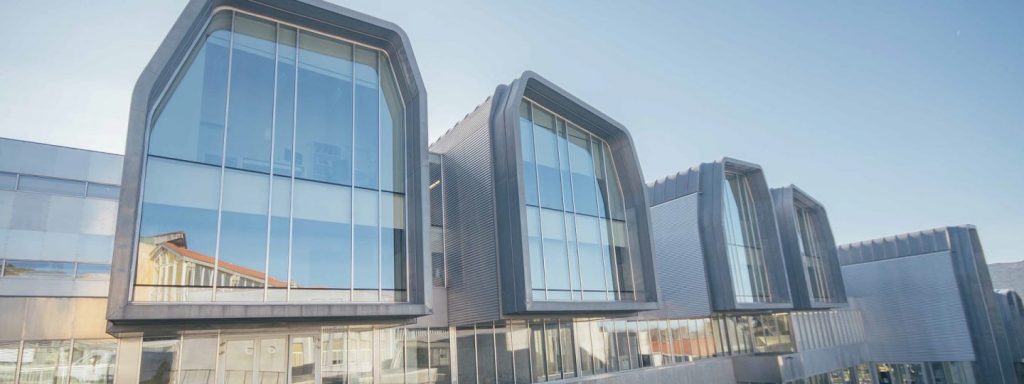
The objective of the Center for Scientific and Technological Support to Research (CACTI) is the centralised acquisition, management and use of large scientific equipment with the aim of providing scientific and technological support both to members of the University Community and to Public Research Organisations, at the national and international levels, and private entities in our environment.
The CACTI covers the most important scientific research services: Structural Determination, Proteomics and Xenomics, Nanotechnology and Surface Analysis, Electron Microscopy, Sustainable Development and Food Safety (in Vigo and Ourense Campuses), Remote Sensing, Machining Workshop and Electronics and Calibration Workshop.
Digital Innovation Hub at the University of Maribor
Research Infrastructure at the University of Maribor

The purpose of the Digital Innovation Hub (EDIH) is to actively promote the digital transformation of the economy and the public sector through state-of-the-art digital technologies such as artificial intelligence, high-performance computing, mass data and augmented/virtual reality while ensuring cyber security and the necessary digital skills.
The establishment of EDIH is a plan of the European Commission within the Digital Europe Program with the aim of accelerating the digital breakthrough of the European Union and bringing digital technologies closer to businesses, citizens and public administration in the EU.
Vega supercomputer
Research Infrastructure at the University of Maribor

Commissioned as the primary supercomputer system of the Slovenian national research infrastructure upgrade project “HPC RIVR” and delivered as the first of eight peta and pre-exa-scale EuroHPC Joint Undertaking systems hosted at the Institute of Information Science – IZUM at the University of Maribor, it increases the computing capacity in Slovenia and the European Union as a whole and helps researchers as well as other users in the public and private sector. Overall technical information on HPC Vega is available here
Infrastructure at the University of Maribor
University of Maribor (UM) offers an online environment for research infrastructure that provides a comprehensive database of the research infrastructure of the UM and shares it among researchers, research groups and research organisations in accordance with the principles of open access to public research infrastructure. UM aims to promote cooperation between users from academic and economic environments and transfer scientific and artistic achievements into the environment.
ECOTECH-COMPLEX: UMCS Analytical Centre for Technologically Advanced Environmentally Friendly Research
Research Infrastructure at the Maria Curie-Skłodowska University
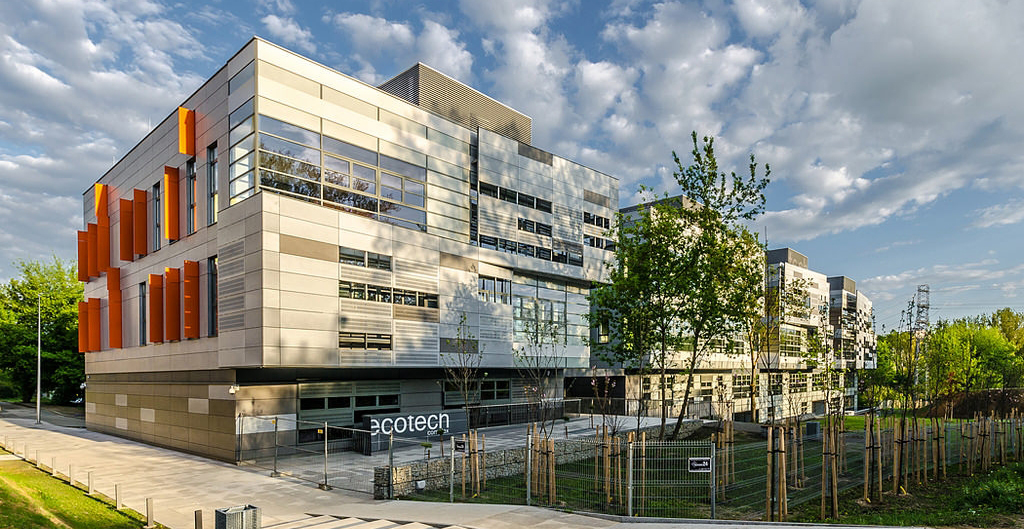
UMCS Analytical Centre for Technologically Advanced Environmentally Friendly Research (ECOTECH-COMPLEX) is equipped with 14 laboratories covering an area of 2600 m2 and a so-called “clean room” for research which requires the highest sanitation standards, has unique conditions for scientific research and the provision of research services for industry on a world-class level.
The research conducted at ECOTECH-COMPLEX focuses on the following areas: agriculture, food, environmental protection, and biomedicine, which are in line with intelligent specializations of Lubelskie Region (RSI).
FabLab Siegen
Research Infrastructure at the University of Siegen
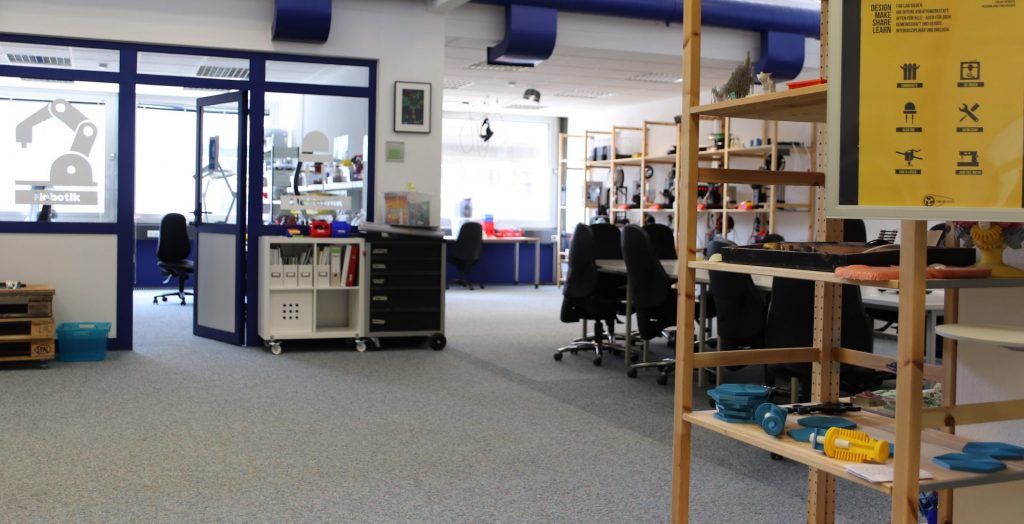
The Fab Lab Siegen is an interdisciplinary (creative) workshop at the University of Siegen that is open to everyone and focuses on collaborative work and experimentation with the fabrication of (almost) any object. Fab Labs (Fabrication Laboratories) are thus intended to be useful to people – regardless of expertise, education, and background – to be able to plan and implement projects in exchange and collaboration with others. Exactly these possibilities of exchange, sharing of knowledge as well as the community are by far the most important offers and goals of such a lab, of which there are now hundreds worldwide. Fab labs are closely related to hackspaces and makerspaces or, more generally, innovation hubs, and are also linked to the maker culture that has been increasingly discussed in the media recently, which is also about do-it-yourself and the creative use of technology.
INCYTE: Interdisciplinary Research Centre for Nanoanalytics, Nanochemistry, and Cyber-Physical Sensor Technologies
Research Infrastructure at the University of Siegen
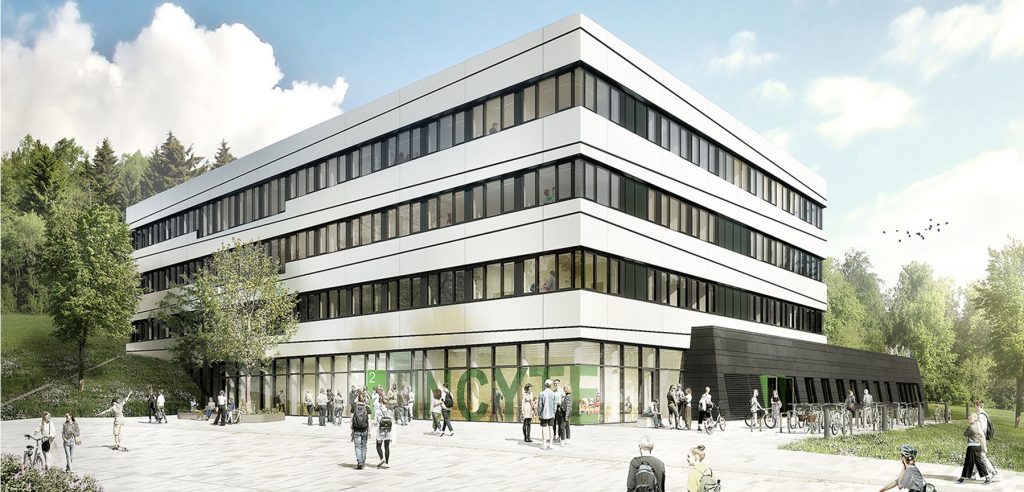
The solution to many of the great questions of our time lies in the small. Nanotechnology plays a decisive role in many areas of our modern life. Thus, solutions for digitalisation, health, and sustainability originate in significant parts from research in the nanocosmos. In 2024, the University of Siegen will open the INCYTE (Interdisciplinary Research Centre for Nanoanalytics, Nanochemistry, and Cyber-Physical Sensor Technologies), a new research building with state-of-the-art laboratories.
The laboratories include S2-level biochemical research areas, clean rooms to produce integrated components in the nanometre range, and highly advanced electron microscopy systems. With this modern laboratory equipment, the INCYTE sets new standards for the uniquely close interdisciplinary collaboration between modern materials sciences, chemical, biochemical and analytical research, and nanotechnologies. The partially shielded and vibration-free laboratory rooms are subject to the highest structural requirements.
ZESS: Center for Sensor Systems
Research Infrastructure at the University of Siegen
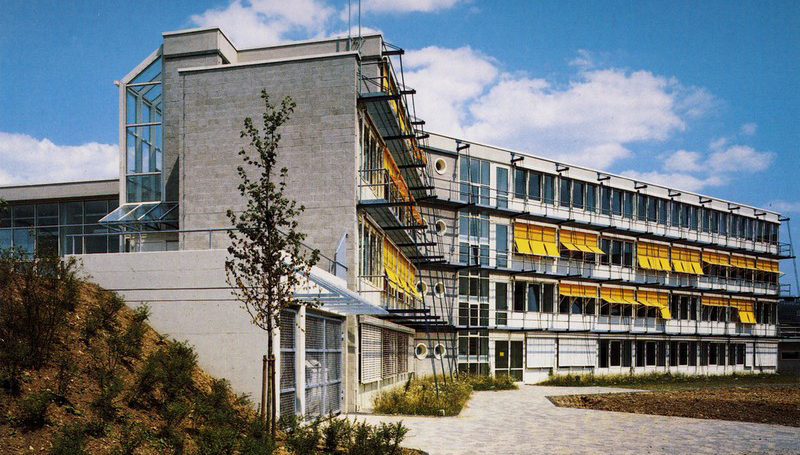
The Center for Sensor Systems (ZESS) defines itself as an interdisciplinary centre with scientists from the engineer´s and natural sciences, which covers, under combining method knowledge from the mechanical, electronical, physical, chemical, and computer science fields, the following three areas of competence:
- Novel Sensor Principles and Sensor Development,
- Sensor Information Processing, and
- High Level Information Extraction and System integration.
By basic research and application-oriented development in these fields ZESS does not only contribute to solve selective actual problems, it provides also the basis for interdisciplinary joint projects in cooperation with the industry and other research institutions. In this process the research and technology transfer in both industrial applications as well as in university teaching is always in the foreground.
IPPL: Research Centre/Institute of Plasma Physics & Lasers
Research Infrastructure at the Hellenic Mediterranean University
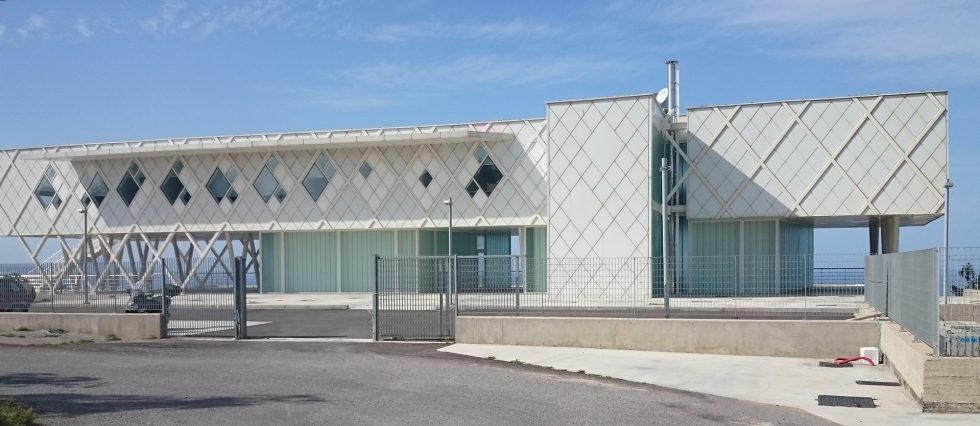
Research Centre/Institute of Plasma Physics & Lasers (IPPL) is one of the access points of the National Research Infrastructure “ELI – LASERLAB Europe Synergy, HiPER & IPERION-CH.gr” (HELLAS-CH).
It can offer access to researchers for cutting-edge research in the field of laser-matter interaction. The flagship of the equipment available at the IPPL is the ZEUS laser, with a power of 45 TW (1.1J, <25 fs, 10Hz), which can be focused at intensities exceeding 10^21 Wcm^-2 allowing for state-of-the-art experiments in cutting edge fields. A laser system with an extremely short pulse duration of 7 fs and phase stabilization (CEP) for experiments of special requirements is available, as well as other state-of-the-art solid-state laser systems with pulse durations of the order of ps and ns at various wavelengths.
IPPL’s specialized equipment includes pulsed power plasma devices (Plasma Focus, Z-pinch, X-pinch) for the generation of dense and hot plasma used for the study of plasma dynamics as well as for the development of applications. Vacuum chambers for the execution of the experiments, as well as high-quality other scientific equipment and diagnostic devices, are available.
Nano@HMU - Nanomaterials for Emerging Devices
Research Infrastructure at the Hellenic Mediterranean University

The Nanomaterials for Emerging Devices (Nano@HMU) group, is a research unit within the Institute of Emerging Technologies of the Hellenic Mediterranean University, is dedicated to revolutionizing electronic and energy devices. With a focus on solution processable nanomaterials, the group is renowned for its ground-breaking work on interfacial engineering of perovskite and organic solar cells, achieving impressive enhancements in both performance and stability.
The institute offers facilities for chemical synthesis and manipulation of organic, hybrid and 2D materials supplemented with a big library of chemicals in store, accompanied by a S2S pilot line for the development and in-situ electrical characterization of printed electronic devices.
Joint Research Laboratory Centre
Research Infrastructure at the Vilnius Gediminas Technical University
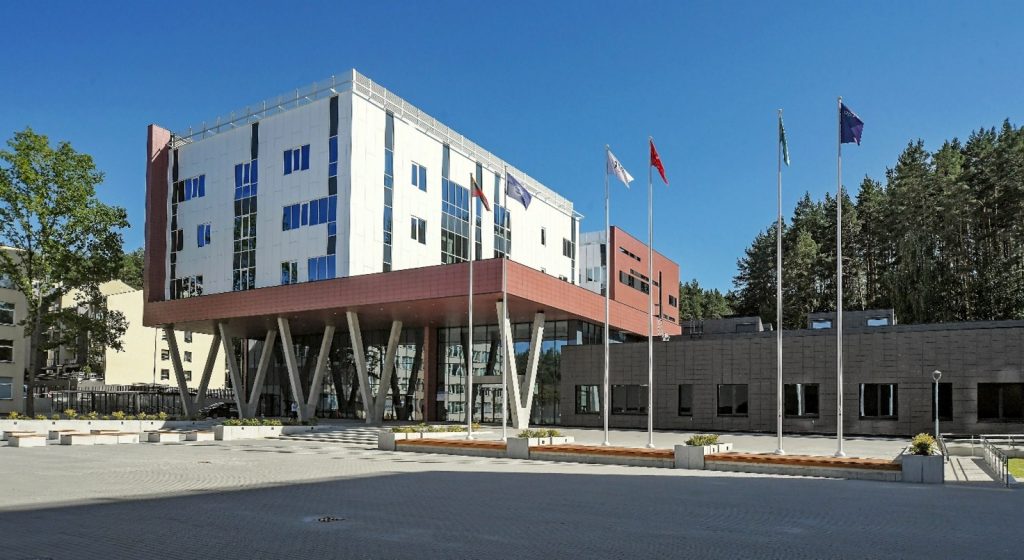
The VILNIUS TECH Joint Research Laboratory Centre represents an innovative approach to scientific, academic, and professional environments, shaping the creative university of the future. This innovative hub unites the Electronics, Mechanics, and Transport Engineering Faculties in a state-of-the-art space of 8,5 thousand m², backed by an investment of approximately 36 million EUR in infrastructure and an additional 5.3 million EUR in research and study equipment.
The Centre is at the Universities forefront of R&D capacities, featuring diverse research areas like autonomous transport technologies with an Audi Q8 e-tron as a platform for prototyping and testing, emission reduction and new fuel technologies using MEXA-2x00SPCS, advancements in biomedical and biomechanical engineering through electro/magneto-poration and holotomography microscopy, and high-frequency/power IC design with specialized measurement equipment. At this Centre researchers also explores new industrial materials with SEM microscopy, precise sample preparation and laser-based measurement systems in material sciences.
This facility is not just a physical space but an incubator of future scientific breakthroughs, nurturing current and upcoming generations of creators.
Creativity and Innovation Centre "LinkMenų fabrikas”
Research Infrastructure at the Vilnius Gediminas Technical University
This state-of-the-art facility is a hub of creativity, bringing together bright minds from academia, industry, and the entrepreneurial community, fostering a culture of creativity and advancement.
Equipped with modern laboratories, collaborative spaces, and advanced tools, it’s an environment where ideas evolve into practical solutions. A strong commitment to nurturing talent, enhancing research and development, and supporting the commercialization of new emerging technologies sets it apart.
“LinkMenų fabrikas” bridges theoretical knowledge with real-world application, creating a dynamic ecosystem that nurtures forward-thinking initiatives, projects and startups. It’s a place where innovation is not just imagined, but realized.
MACLE-CVL: Microscopies, imAgeries and anaLytic resourCes
Research Infrastructure at the University of Orléans
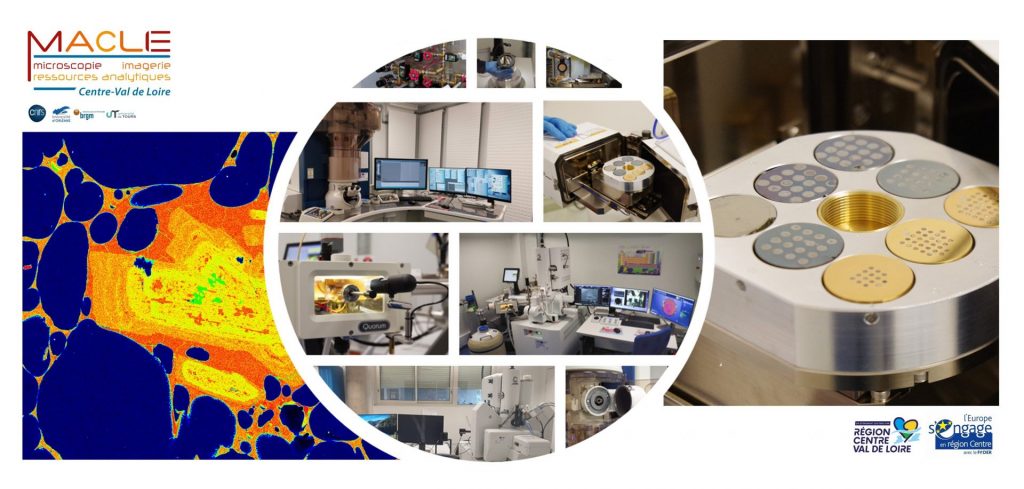
The MACLE-CVL regional platform: Microscopies, imAgeries and anaLytic resourCes in the Centre-Val de Loire region hosts a park of multifunctional high-resolution electron microscopy instruments and offers a wide range of imaging and chemical analysis services for research, higher education and industry.
It contributes to the development of new techniques in the domain of multi-scale structural and analytical characterisation of different types of materials (materials for energy, biological materials, archaeomaterials, geological materials and innovative materials) for a broad community including earth sciences, material sciences, life sciences and human sciences, and covers a wide thematic field.
The MACLE-CVL platform is also involved in training initiatives in these areas of expertise.
SALSA: Synthesis and Analysis for the Health, Agronomy and well-being
Research Infrastructure at the University of Orléans
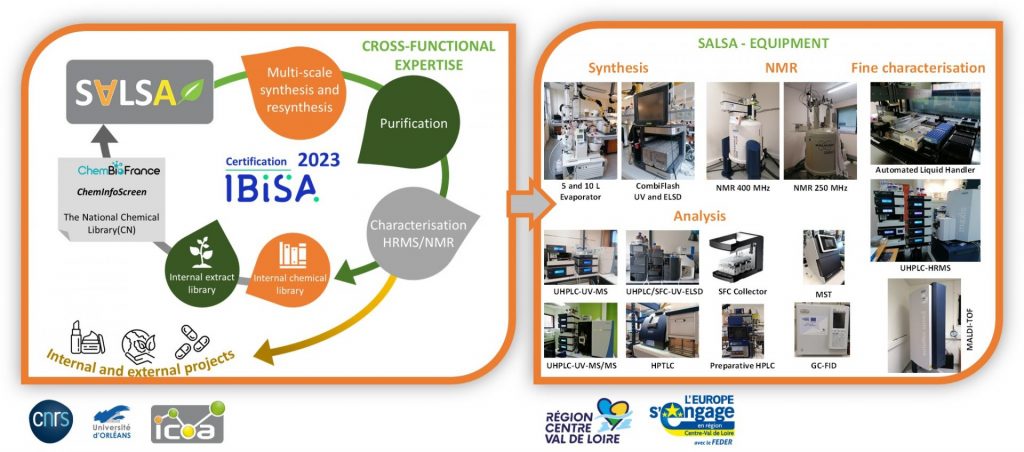
The SALSA platform (Synthesis and Analysis for the Health, Agronomy and well-being), which has received the national IBiSA (Infrastructure in Biology, Health and Agronomy) label in 2023, is a combination of three existing platforms:
- Synthesis platform + NMR service
- Analytical Techniques Platform
- High Resolution Mass Spectrometry (HRMS) Platform
Thus, the SALSA responds specifically, on a single site, to the needs of internal and external users, both academic and industrial.
It offers numerous possibilities for quality services using a variety of resources, cutting-edge technologies and original methods of organic synthesis and analytical chemistry through capacities in separative techniques, spectroscopy and mass spectrometry, in the field of life and more particularly in health, agronomy and well-being.
PORTIC: The Porto Research, Technology & Innovation Center
Research Infrastructure at the Polytechnic University of Porto
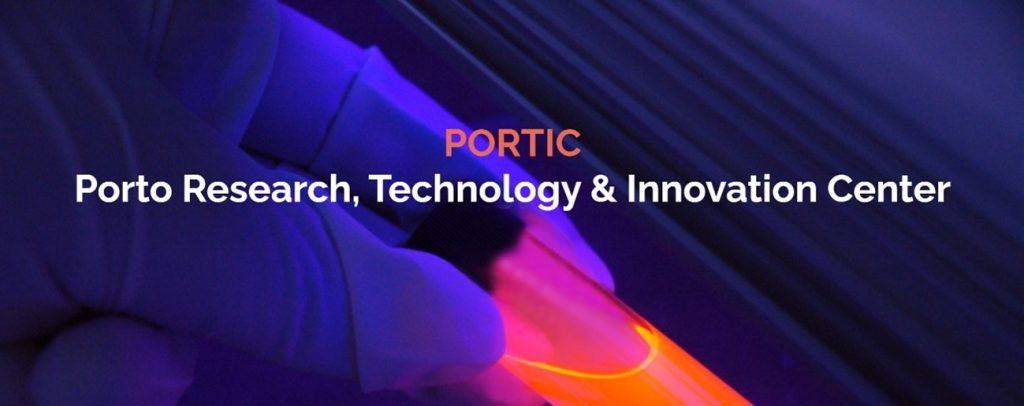
The Porto Research, Technology & Innovation Center (PORTIC) stands as the nexus for research, innovation, and technological development at the Polytechnic Institute of Porto (P.PORTO), fostering synergies between R&D centers, groups, companies, startups, and various intervention areas.
PORTIC serves as a cohesive entity, bringing together P.PORTO’s research centers and groups, alongside technological companies, startups, and R&D institutes. This collaborative superstructure is dedicated to the domains of research, technology transfer, innovation, and entrepreneurship.
Notably, within this framework, the infrastructure of P.PORTO’s research centers plays a pivotal role. These cutting-edge facilities contribute to the creation of an ecosystem that stimulates synergies, encouraging the fertile intersection of diverse knowledge areas. The integration of skills and teams, collaboration promotion, and the cultivation of joint projects all occur within a space dedicated to knowledge, science, transfer, and replication—adhering to international best practices.
RIMTS - The Manufacturing Technology and Systems Research Infrastructure
Research Infrastructure at the Niccolò Cusano University
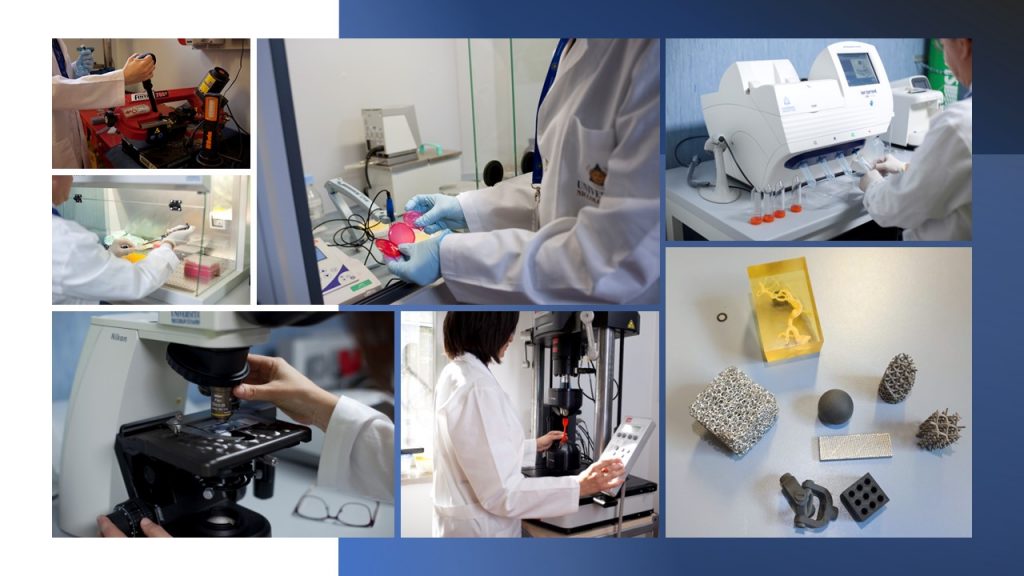
The Manufacturing Technology and Systems Research Infrastructure (RIMTS) is a section of the Engineering laboratories of Niccolò Cusano University (UCusano) intended to meet the research needs in the fields of science and technology of materials and technologies and processing systems. It offers the possibility of formulating and producing innovative materials, both ceramic, polymeric and composite, and products, thanks to the presence of a fully equipped chemical laboratory and different process technologies, i.e. 3D printing of polymers (FDM, DLP, SLS), resin transfer molding (synthetic and natural composites), electrospinning, airbrushing, dip coating. The infrastructure allows to carry out static and dynamic mechanical tests for the characterization of various materials, such as polymers, ceramics, metals and composites, and DSC thermal tests for polymers. The mechanical workshop, equipped with CNCs, machine tools, and lasers, allows the processing of various types of materials for material removal, surface functionalization (i.e. texturing, marking, engraving, etc.), heat treatment, hardening, bending, and joining.
